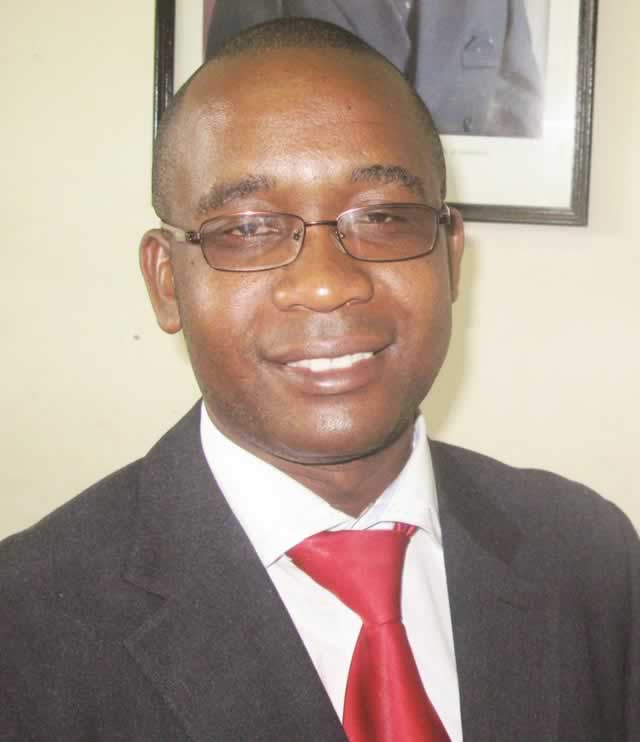Why investing in teen girls matters


One additional year in school can increase a woman’s earnings by 10 percent. file picture (Unicef)
Roselyne Sachiti Features Editor
Since the age of six, Chiedza Matanga (not real name) of Mutare in the eastern part of Zimbabwe, has always dreamt of becoming a nurse.
Born second in a family of five to communal farmer parents, in Mutasa, Chiedza now 13, has seen a few girls from her village successfully become what they have always dreamt of.
Their neighbour’s daughters Maria, Venencia and Maggie all became teachers and funded the construction of a big kitchen with huge windows for their mother.
Chiedza hopes she will be a nurse one day and be able to do the same and more for her 46-year old mother.
Each time she accompanies her mother and seven months old twin brothers for weighing at the local clinic, Chiedza admires the clean white uniforms worn by the nurses.
She says she always imagines how good the white uniform would make her look and has even made drawings depicting herself as a nurse attending to patients.
“My parents cannot afford school fees and I missed school for three months last year. My brother Francis is in Form 4 and my father said he should finish school first, then maybe he can help pay for my fees if he gets a job.
“Sometimes when my father is drunk he just says I should get married and start my own family,” she said in an interview.
If it were not for her uncle working as a waiter at a hotel in neighbouring South Africa, Chiedza could have been married last year.
A local herdboy, Enock, had told his father that he wanted her hand in marriage and negotiations we well underway as he had already drafted his wish list of three cows, a suit, groceries, a dress for her mom and $400 bride price.
“My mother pleaded with my South African-based uncle who promised to pay for my fees and buy uniforms and books. He kept his promise and I am back in school. He said he would also pay for my nursing course if I passed. I am so happy he said he would make sure my father is arrested if he forced me to marry,” she said.
Chiedza is one of the many teenage girls who if not for her uncle’s investment in her education could easily miss out on education opportunities and fall on to the marriage bed.
Gender inequality, poverty, family pressure, gender-based violence, forced marriages, inadequate sanitation and other issues relating to sexual and reproductive health rights are also among other issues barring girls from completing school in Zimbabwe, and this has lasting effects on women’s and families’ health.
These challenges are exacerbated among marginalised girls, such as members of apostolic faith religious sects or those living in poverty or remote areas.
Today, (Monday JULY 11) Zimbabwe joins the rest of the world in commemorating World Population Day whose theme is ‘Investing in teenage girls.’
In 1989, the Governing Council of the United Nations Development Programme recommended that July 11 be observed by the international community as World Population Day, a day to focus attention on the urgency and importance of population issues.
Studies have shown that one additional year in school can increase a woman’s earnings by 10 percent, and having a literate mother makes a child 50 percent more likely to live past the age of five.
Uneducated girls and adult women have fewer opportunities and little access to the means of production and cannot financially provide for themselves and their families.
Empowering girls and women through education has proved a solution to many socio economic challenges faced by women and helped countries increase and sustain economic growth resulting in better living standards.
If given more rights and opportunities, girls and women begin to receive education resulting in an increase in the human capital of the country.
With more education, girls and women are also able to control their lives and are successful to bringing down rapid population growth because they have more say in family planning, maternal health and child nutrition.
At the recent Women Deliver 2016 Conference in Copenhagen Denmark, Queen Máxima of the Netherlands, the UN Secretary-General’s Special Advocate for Inclusive Finance for Development (UNSGSA), Her Royal Highness Princess Mabel van Oranje, Chair of Girls Not Brides, and other luminaries such as Jim Young Kim, President of the World Bank Group, emphasis0ed the importance of investing in girls and women and the critical role data plays in establishing gender equity.
Across a series of plenaries, global leaders argued that investments in women and girls are essential to achieving the Sustainable Development Goals (SDGs), ending poverty and building a better world for future generations. “The fact is that when you invest in women and girls, everybody wins. Data can prove it and has the power to build accountability, create effective policies and help us meet our long-term development goals,” said Katja Iversen, CEO of Women Deliver. “Women count. It’s time for us to start counting them and counting them in.”
The new Guttmacher Institute report, Adding It Up: Costs and Benefits of Meeting the Contraceptive Needs of Adolescents, presents a comprehensive global and regional analysis of the need for sexual and reproductive health services for adolescents in the developing world and the potential impact new investments in these essential services would have on the health and lives of adolescents.
“Our findings make clear that helping adolescent women avoid unintended pregnancy and childbearing has a profound impact on their lives, enabling them to achieve greater educational attainment, better economic opportunities and healthier lives,” Ann Starrs, president and CEO of the Guttmacher Institute also told journalists at the conference. “Meeting adolescents’ contraceptive needs is not only affordable, but the payback is enormous, improving the lives of millions of young women around the world.”
With teenage girls like Chiedza getting a second chance, there is hope if more men like her uncle invest in women’s education. If anything, investing in women’s education is the wise thing to do and governments across the globe can learn from each other’s successes and failures.








Comments